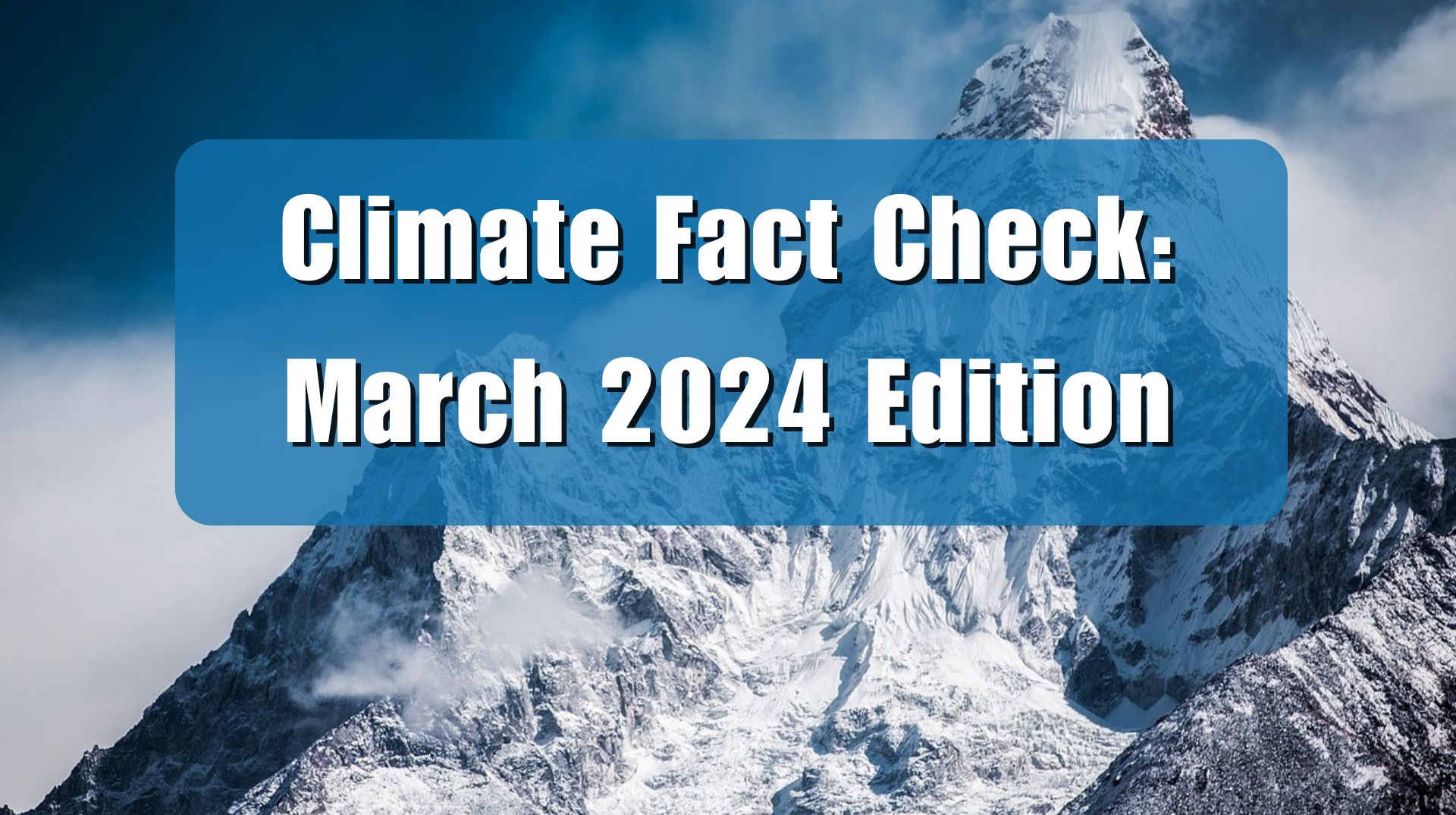Every few months one polling firm or another releases a survey asking people if they would like action on climate change. And survey after survey says people would – if action is not too costly or disruptive. A new Pew Research Center poll is being hyped by the Washington Post and other Establishment-Left media, but it does nothing to change the equation.
A June 23 survey conducted by the reports a majority of respondents say they are concerned about climate change along with other environmental issues, and that government should do more to prevent climate change.
As with other such surveys, however, the more important question is where their concern about climate ranks in relation to other issues and, crucially, how much they will personally be willing to pay to fight climate change. The Pew Poll doesn’t ask these question, but others have and the answers are enlightening.
If you ask the public about almost any potential concern that is frequently in the headlines, poll respondents will say government should do more to fix the problem. Indeed, when surveys ask whether crime, economic growth, education, health care, immigration, jobs, retirement, taxes, terrorism, and similar issues are important – and whether government should do more to solve these problems – majorities consistently say yes. However, what we really need to know is how important each issue is relative to other matters of concern. In a world of limited resources and limited voter attention, government must focus on what the public is most concerned about and what will motivate people when they go to the polls.
In this regard, climate change consistently ranks at or near the bottom on the list of public concerns. For example, a United Nations poll surveying more than 7 million respondents from 195 countries asked participants to rank 16 priorities. Quality education ranked first and “Action Taken on Climate Change” ranked dead last.
The results of a survey conducted by the Washington Post and the Kaiser Family Foundation in 2019 are similar. Survey participants were asked, “How important are the following issues to you personally?” Options included climate change, the economy, gun policy, health care, immigration, and renewable energy. Climate change came in second-to-last among adults and third-to-last among teens in the number of people rating it as either “extremely” or “very” important. The only category that consistently ranked lower than climate change was “renewable energy.”
The new Pew poll touted by the Washington Post misleadingly asks if people think government should tax the fossil fuel industry, or spend more on renewable energy sources, or impose tougher emission restrictions on power plants and automobiles to fight climate change. Significant majorities of respondents say yes, yet the survey attaches no dollar figures to any of these policies. When people think something will cost them nothing, they want it, but the number of takers declines sharply as the costs go up.
However, a 2017 University of Chicago and Associated Press-NORC Center for Public Affairs research poll; a 2015 survey conducted by The New York Times, Stanford University, and Resources for the Future; and the 2019 Post/Kaiser poll found the public wants to fight climate change only if it can be done for free or at very little cost. Even a climate realist like me was surprised by how little money people are willing to spend to fight the mythical climate crisis!
More than half (60 percent) of Post/Kaiser survey respondents said they believed the world had less than 10 years to prevent the worst effects of climate change. Despite this, 51 percent of those surveyed would be “somewhat” or “strongly” opposed to paying a $2 monthly tax on U.S. residential electric bills to pay for the fight against climate change. Similarly, 61 percent would reject a 10-cents-per-gallon increase in the gasoline tax to fight climate change.
The number of respondents opposed to hikes in electricity costs and gas taxes rose sharply when the proposed fees were increased: 71 percent oppose a $10 monthly tax on U.S. residential electric bills, and 74 percent oppose increasing the gas tax by 25 cents per gallon. These relatively modest cost increases are far below what it would cost the average household to pay for the Green New Deal (GND), or even the GND-lite carbon tax proposals being offered by a very few liberal Republicans in Congress.
In the end, the so-called climate crisis may concern many people in the abstract, but relatively few people rank it high compared to other public policy issues of concern, and fewer still are willing to pay very much to fight climate change. That’s the important truth public polling firms should note.















